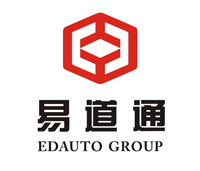On March 25, the Indian government made a major announcement that is expected to reshape its electric vehicle and mobile phone manufacturing landscape. The government announced that it would remove import duties on a range of electric vehicle batteries and mobile phone production essentials. This strategic decision is aimed at supporting local producers and better positioning them to withstand the upcoming reciprocal tariffs from the United States that will take effect on April 2. Finance Minister Nirmala Sitharaman stressed that reducing tariffs on raw materials is a key step to boost domestic production and improve export competitiveness.

The Indian government’s announcement of exemption of import duties on 35 electric vehicle battery manufacturing products and 28 mobile phone manufacturing products clearly demonstrates India’s commitment to fostering a strong manufacturing ecosystem. By alleviating the financial burden associated with raw material costs, local manufacturers will be better able to offer competitive products, thereby attracting a larger consumer base and increasing their market share. This move not only supports domestic industry, but is also in line with the global trend towards clean energy and sustainable technologies.
GUIDING TRADE RELATIONS AND PROMOTING OPEN MARKETS
The introduction of this policy is inseparable from the Indian government’s proactive measures to deal with possible reciprocal tariffs imposed by the United States. As India and the United States negotiate to resolve tariff disputes and establish a bilateral trade agreement, India has expressed its willingness to consider reducing tariffs on more than $23 billion worth of U.S. imports. This willingness reflects India’s desire to strengthen trade relations with the United States while protecting its domestic manufacturing industry.
In addition, the Indian government reiterated its commitment to avoid trade protectionism. In recent weeks, India has reduced import tariffs on nearly 30 items, including high-end motorcycles, and is currently evaluating additional taxes on luxury cars. These moves highlight the Indian government’s efforts to strike a balance in the global trade environment, aiming to attract foreign investment while promoting the growth of domestic industries. By pursuing an open trade policy, India is positioning itself as an attractive destination for foreign investors, which can lead to technology transfer, innovation and job creation.
The reduction in import duties is expected to have a direct impact on the production cost of electric vehicle batteries and mobile phone manufacturing. This is a positive sign for local manufacturers as it enables them to operate more efficiently and competitively. The Indian electric vehicle and mobile phone industries will benefit greatly from this policy as they can now offer their products at more competitive prices, thereby enhancing their appeal to consumers.
In addition to direct economic benefits, this strategic move also reflects India’s proactive response to the changing foreign trade environment. By reducing tariffs, India not only protects its domestic enterprises, but also enhances their ability to withstand external shocks. This approach helps stabilize the domestic market, ease the pressure caused by trade frictions, and ultimately promote a healthier trade relationship with the United States. Through the ongoing negotiations, India aims to reach a more favorable tariff agreement and achieve a win-win situation for both countries.
As international automakers, including industry giants such as Tesla, continue to enter the Indian market, competition is expected to intensify. The government’s decision to reduce tariffs will create a more favorable market environment for these companies and further stimulate the overall development of the Indian electric vehicle industry. This will not only support the transition to green energy, but will also enhance India’s position in the global electric vehicle industry chain.
In light of these developments, we must recognize the growing importance of new energy vehicles and the global acceptance of clean energy solutions. Countries around the world are increasing their investments in sustainable technologies, and India is no exception. The government’s proactive measures to support local manufacturers in the electric vehicle and mobile phone sectors demonstrate the government’s broader commitment to promoting innovation and sustainable development.
As we watch the electric vehicle market develop, it is important to pay attention to the progress made by companies in other regions, especially China. Well-known companies such as BYD Auto, Li Auto and Xiaomi
Motors have made significant progress in the new energy vehicle sector. Their innovation and market strategies provide valuable lessons for India as it seeks to enhance its own electric vehicle industry.
In summary, India’s recent policy changes reflect its strategic approach to strengthening its electric vehicle and mobile phone manufacturing industries while navigating complex international trade dynamics. By reducing import tariffs and promoting an open trade environment, India is not only supporting its local industry, but also positioning itself as a key player in the global transition to clean energy. As the world increasingly recognizes the importance of sustainable technologies, stakeholders must remain vigilant and engaged in the evolving landscape of new energy vehicles.
Phone / WhatsApp:+8613299020000
Email:edautogroup@hotmail.com
Post time: Mar-31-2025


